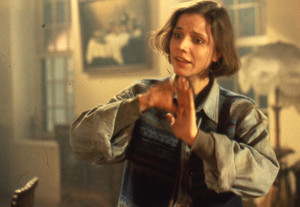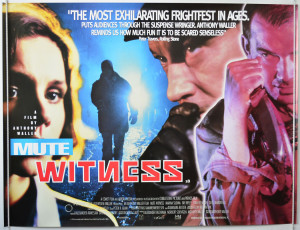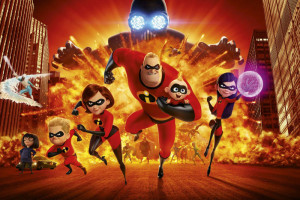The Greatest Showman wasn’t exactly the greatest show. Inherent problems with the character of PT Barnum aside, the musical was weak and the story overstuffed.
Plenty of critiques exist already on the new film, The Greatest Showman, especially considering it glorifies a man who famously profited off of the disabled. I wanted to talk about the film as it works (or mostly, doesn’t) as a musical. As a musical theatre performer, I had a great many thoughts on why the movie isn’t that much fun to watch, while the soundtrack is fun to listen to.
The movie follows the life of P.T. Barnum (Hugh Jackman) of Barnum and Bailey circus. The concept is a bit sour right off the bat, as it’s difficult to tell this story with Barnum as a hero when he so clearly exploited what the movie called “unique persons” for his own gain.
We begin with his childhood and speed through his entire young life alongside his love Charity (Michelle Williams). The opening song A Million Dreams tells us that Charity loves Barnum despite his poverty for his positivity and aspirations (she being wealthy and out of his league). He hits rock bottom at a young age and works his way from homeless back to being a bit of success, having two children with Charity and moving to a small apartment in New York. It’s rather astonishing that all of this can be condensed into one song, when it could easily be a musical in and of itself, but it sets the pace for the rest of the movie. It is fast-moving and pays little attention to detail, giving you broad strokes as opposed to nuance.
Once we know where Barnum is in his adult life, including that he lost his job recently (this happens between the opening number and it’s reprise – almost too fast to find out that he works for a shipping company), the real plot of the movie begins. Barnum obtains a bank loan under false pretenses and opens a wax museum, but has no success. His children suggest getting something “alive” and for him that means getting people who would make good attractions. He decides that “unique persons” are what he is looking for and he finds a collection of people with different skills or physical deformities to employ. He creates a show with them and it’s a smashing hit (except with the elites of New York, which happen to include his wife’s parents). A lot of the story revolves around Barnum trying to prove that he is worthy of Charity, while she tries to get him to stop because, after all, they’re already married, she already chose him, and he doesn’t need to keep taking all the risks that he does. As an audience member, I mostly agreed with her.
Does it feel like this is a lot of information about the movie, and not just a critique of it? That’s exactly how you feel watching the movie: there is a LOT of stuff happening. And I haven’t even begun on any of the subplots yet.
The movie makes a huge effort to tackle every major topic: issues relating to politics, class, gender, race, and disability are all given their screen time. And it is simply too much. This movie was an overwhelming experience of angle after angle, story after story, camera perspective switch to camera perspective switch. When a musical bets on spectacle as opposed to substance, it can often pay off. But when you’re sitting in a theatre watching live performers dance perfectly in unison, there is a feeling of satisfaction in the symmetry of the performance. They all kick at the same time, same height, on the beat, etc. The human body is wired to like this sort of cohesion. This movie tears away your opportunity to enjoy its spectacle because the camera angles switch so frequently and we hardly get to know any of the characters that we completely stop caring about what we’re looking at. It’s the same as watching an action movie for me: yes, there are lots of explosions. But why do I care?
The most interesting performances of the movie come from Zac Efron and Zendaya, whose subplot is that they are in love but she is black and he is white (which doesn’t fly in New York of the 1870s). Efron plays Phillip Carlyle, a playwright for the upper class, and Zendaya is a stunningly beautiful trapeze artist in Barnum’s circus named Anne Wheeler. They have the winning combination of having great songs and strong character development. Moments where the movie finally lets us breathe also come as an interaction between the two, possibly making us like them more because we actually get a chance to look at them, watch how they interact, and see a bit of subtlety. They are also the best singers of the main characters. Most of the singing in this movie occupies the weird space between whispering and singing. People seem to think that whispering or speaking, as opposed to singing full voice, will give what they’re saying more impact. The few times you hear a note that truly resonates coming out of Hugh Jackman’s mouth (read: pre-recorded and heavily edited track) you feel like the movie has finally moved forward. But this only occurs about three or four times.
In a musical, the songs should exist to move the plot forward or teach us something about the characters. This movie falls short of this in many ways, but most notably with regard to Jenny Lind (Rebecca Ferguson). She is supposed to be a world-renowned opera singer who makes moves on Barnum. When we first hear her sing, we are met with a song that does not stand up to the build up it has received, heavily employs whisper singing, and looks painful to perform. It is jarring to say the least to insert modern, quite pop sounding music into a story about the 1870s, but here it is particularly noticeable and extremely disappointing. The style of the song fits in with nothing: the atmosphere, the character, or the plot. And yet at the end the crowd jumps to their feet, extremely moved. We are supposed to understand that what we hear is not what she just performed, and yet I am left desperately wanting to hear whatever made that audience so happy. She reprises this song after Barnum produces her tour of America, she tries to seduce him, and he rejects her. There is supposed to be a shift in the meaning of the song, but the only shift we see is from the way she is performing (she cries a lot), and it employs even more whisper singing, and we additionally don’t want to feel sorry for a woman who tried to convince a man to cheat on his wife. The movie contradicts itself in wanting us to have sympathy for her but not wanting us to side with her.
The greatest moment of the movie is the song ‘This Is Me.’ A powerful anthem of self acceptance sung incredibly well by Keala Settle (who plays bearded lady Lettie Lutz) supported by the chorus of “unique persons” and a massive dance number. It’s everything you could possibly want. Except that there is a video online of a rehearsal of the song that is way, WAY more interesting to watch because it lacks the constant change of venue and unrelated action that the movie forces into it. This song also has the difficult task of following the moment the movie tells you the most about its main character: Barnum refuses to let his circus “family” socialize with the upper class that he invited to meet Jenny Lind. In this moment he is classist and rude, and nothing he does later in the film feels like a real redemption, as his motivator for making amends is money, not friendship. A great choice would have been to have the circus group go into the party anyway and sing their song, forcing Barnum to accept or reject them in front of the whole crowd. But instead they storm off to perform their show/physically fight the protestors who don’t approve of them. The anthem about standing up and celebrating yourself gets directed at entirely the wrong problem and it is very frustrating. But as a song on it’s own, it is very moving. It is unsurprising that it has been nominated for this year’s Best Original Song Oscar.
It is clear that all of the performers in this movie have at least some skills. Unfortunately, the movie doesn’t let us appreciate them that much. It goes by too quickly and tries to tell us too much. And when the hero of your film is this unlikeable, it just doesn’t make you want to watch.
BONUS: If you’ve seen the movie, you may have noticed that the character who has dwarfism, Charles Stratton (also known as General Tom Thumb), appears to be digitally animated at times, but not at others. This is because actor Sam Humphrey, though himself a dwarf, is taller than the real Tom Thumb, so he frequently walked on his knees to get the height right and they digitally erased and re-drew his legs. It is extremely noticeable in the film – the digital deepening of his voice is also apparent. This seems an unnecessary choice – how many people would have pointed to that film and said, “He’s not the right height?” I am simply happy to see a person of short stature in a major motion picture. This is further proof that this movie cared a lot more about looks and spectacle than substance.






















